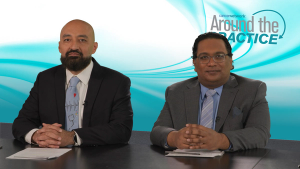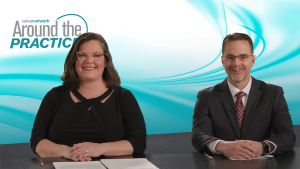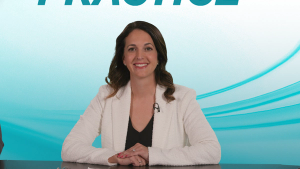Articles by Naresh Bumma, MD
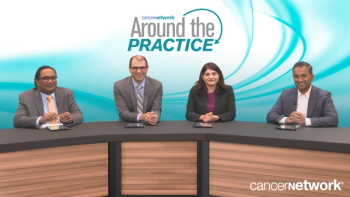
Panelists discuss how bispecific antibodies targeting B-cell maturation agent, GPRC5D, and FcRH5 are transforming relapsed/refractory multiple myeloma treatment (R/R MM) with promising efficacy, manageable safety profiles, and convenient off-the-shelf administration.

Panelists discuss how sequential B-cell maturation agent (BCMA)–targeting therapies can be effective despite potential resistance patterns, with experts evaluating factors like prior response duration, alternative targets like GPRC5D or FcRH5, and patient-specific characteristics when deciding treatment sequencing after CAR T progression.

Panelists discuss how teclistamab administration and outcomes vary between academic and community settings, highlighting the need for standardized monitoring protocols, staff education, and communication frameworks to ensure consistent patient care and safety across different practice environments.

Panelists discuss how long-term follow-up data from MajesTEC-1 demonstrates teclistamab’s sustained efficacy and safety profile while identifying optimal candidates based on factors like prior therapy exposure, disease characteristics, and fitness level.

Panelists discuss how talquetamab demonstrates superior efficacy compared with physician-chosen treatments for patients with heavily pretreated multiple myeloma, with improved progression-free survival and response rates.

Panelists discuss how emerging therapies like bispecific antibodies, chimeric antigen receptor (CAR) T cells, and novel drug combinations are reshaping treatment options for patients with relapsed/refractory multiple myeloma (R/R MM) who have exhausted standard approaches.
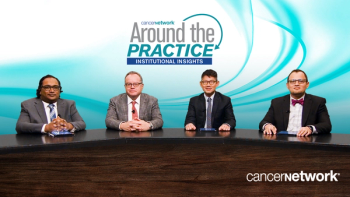
The panel concludes its discussion with key takeaways on the evolving treatment landscape for multiple myeloma.

Experts on multiple myeloma look to the future treatment landscape and discuss exciting updates presented at the 2024 ASCO Annual Meeting, highlighting belantamab mafodotin and combination therapies.

Samer Al'Hadidi, MD, provides a comprehensive overview of adverse event management practices for patients with multiple myeloma who receive CAR T-cell therapy.

Hans Lee, MD, discusses recent updates presented at ASCO 2024 surrounding cilta-cel CAR T-cell therapy in relapsed/refractory multiple myeloma.

Myeloma specialists discuss considerations they consider when determining how they sequence CAR T-cell therapies and bispecific antibodies.

Following ASCO 2024, Samer Al'Hadidi, MD, discusses recent updates from the PERSEUS trial evaluating the role of testing for minimal residual disease (MRD) in guiding treatment for relapsed/refractory multiple myeloma.

Experts on multiple myeloma provide comprehensive insights on treatment spacing and step-up dosing practices and discuss the long-term utilization of bispecific antibodies.

The expert panel shares clinical insights on sequencing CAR T-cell therapies and bispecific antibodies for patients with relapsed/refractory multiple myeloma.

Naresh Bumma, MD, and Hans Lee, MD, recap recent updates on the MagnetisMM-30 an MagnetisMM-32 studies investigating elranatamab, a BCMA-directed bispecific antibody.

Samer Al'Hadidi, MD, provides an overview of recent updates presented at ASCO 2024 from the MajesTEC-1 trial evaluating teclistamab in patients with relapsed/refractory multiple myeloma.

Hans Lee, MD, discusses recent updates from the MonumenTAL-2 study investigating talquetamab in patients with relapsed/refractory multiple myeloma.

Focusing on recent approvals in earlier lines of relapsed/refractory multiple myeloma, the panel has a comprehensive discussion on the CARTITUDE-4 and KarMMa-3 studies and shares clinical insights on administering CAR T-cell therapy and monitoring patients.

A panel of experts on multiple myeloma introduce themselves and discuss recent data presented on the phase 3 IMROZ trial for transplant-ineligible patients with newly diagnosed multiple myeloma (NDMM).
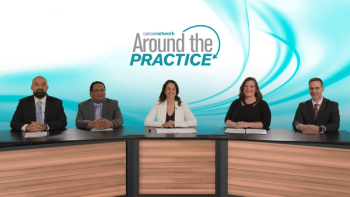
Closing out their discussion, the panel shares remaining unmet needs in the treatment of newly-diagnosed and relapsed multiple myeloma.
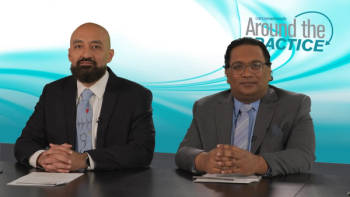
Naresh Bumma, MD, reviews how he selects between CAR T-cell therapy and bispecific agents for patients with refractory multiple myeloma.

Naresh Bumma, MD, details other bispecific agents on the horizon for relapsed multiple myeloma treatment.

Abdullah Khan, MBBS, explains the current data on bispecific T-cell engaging antibodies for the treatment of relapsed multiple myeloma.
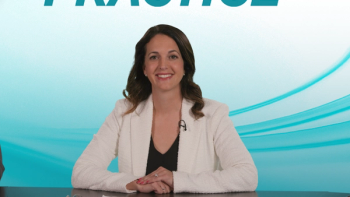
Ashley Rosko, MD, presents the case of a 72-year-old woman with relapsed multiple myeloma for discussion.
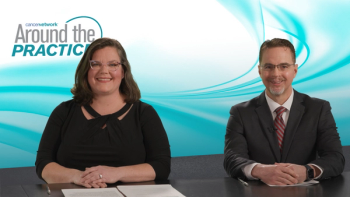
April Logue, APRN-CNP, shares her perspective on selecting between doublet and triplet regimens for patients with transplant-ineligible newly-diagnosed multiple myeloma.

Naresh Bumma, MD, reviews updated data from the MAIA trial in transplant-ineligible newly-diagnosed multiple myeloma.

Ashley Rosko, MD, presents the case of a 79-year-old female with transplant-ineligible newly-diagnosed multiple myeloma.

Barry Hammer, PA-C, defines high-risk multiple myeloma and explains the treatment adjustments needed for newly-diagnosed patients.

Naresh Bumma, MD, reviews data from the final analysis of the GRIFFIN trial investigating a quadruplet induction therapy regimen in newly-diagnosed multiple myeloma and discusses how patients are evaluated for transplant.

Ashley Rosko, MD, presents the case of a 57-year-old male with newly-diagnosed multiple myeloma for discussion.








